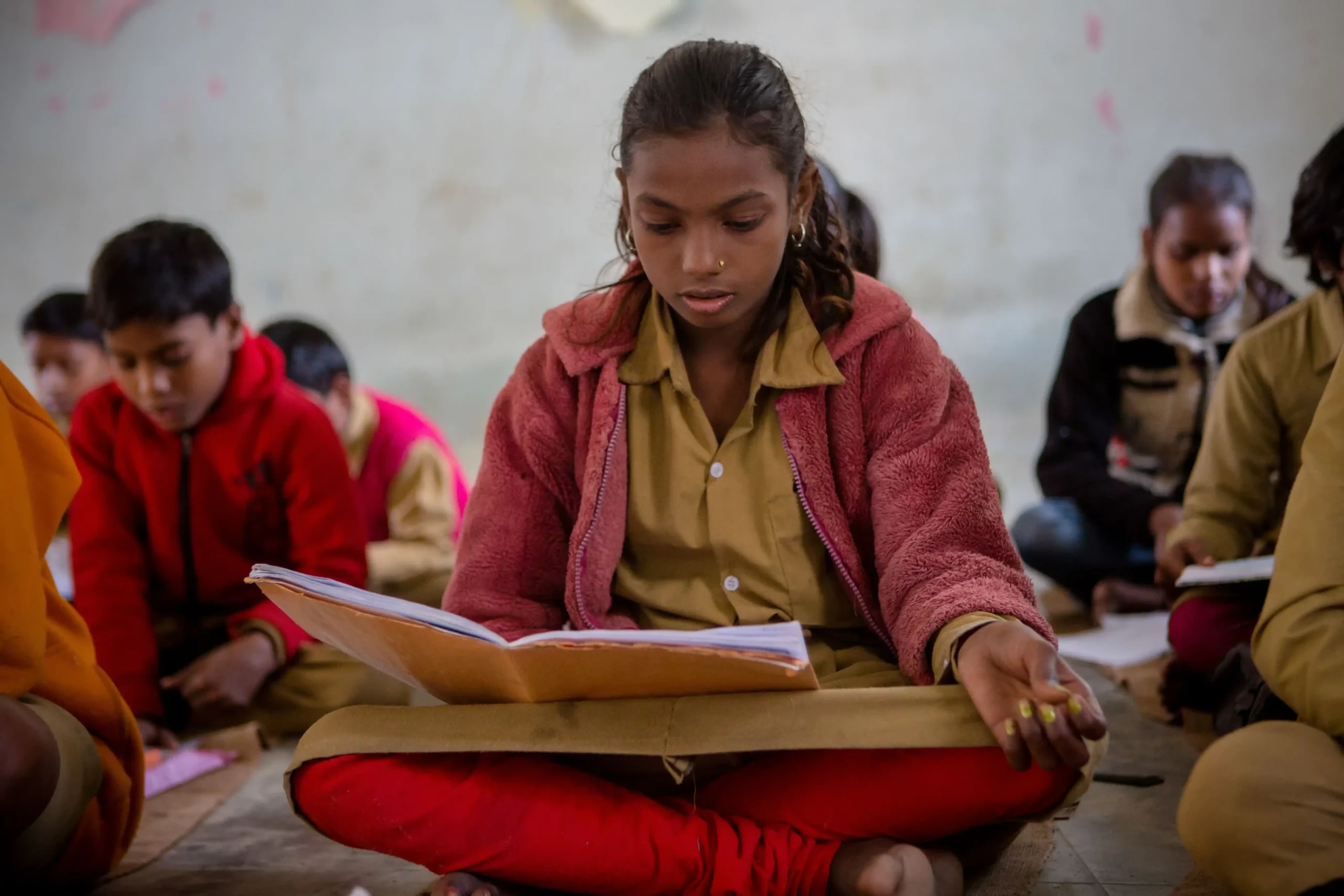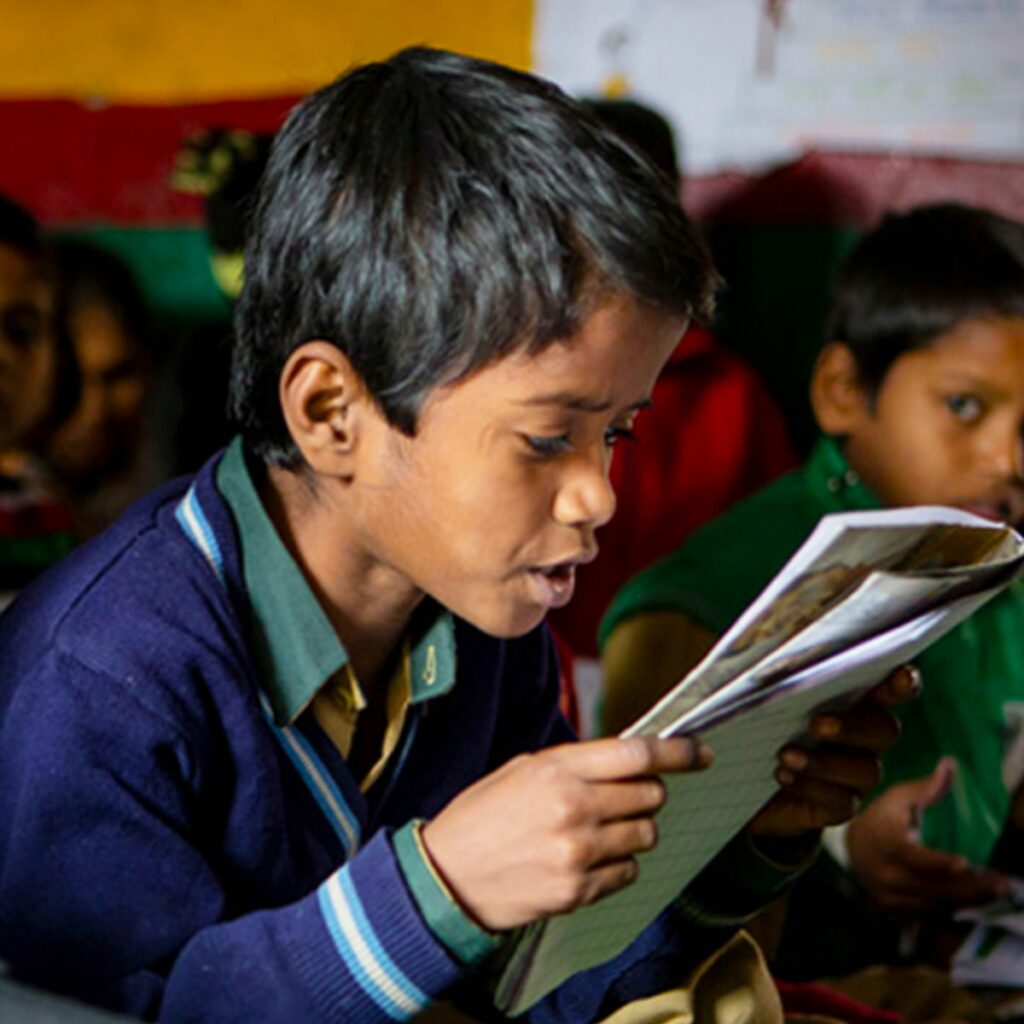
International Day of Women and Girls in Science: Celebrating the Girls in Science
Every year, the International Day of Women and girls in science brings the world together to celebrate curiosity, creativity, and the courage to expl....
Read MoreEarly Childhood Care and Education (ECCE) plays a vital role in a child's development, particularly in underserved communities with limited access to quality education and care.
Children often face many challenges in these areas that hinder their early learning experiences. NGOs like CRY India step in to bridge critical gaps, striving to ensure that every child—regardless of their background—has access to quality care and foundational education in their early years.

Early Childhood Care and Education refers to structured care and educational programs designed for children under the age of eight. These programs aim to provide children with the foundational skills they need for lifelong learning and well-being.
ECCE includes a mix of play-based learning, basic education, and health care, which support a child's emotional, social, cognitive, and physical development. This program is critical in the early years as it lays the groundwork for future learning.
What is ECCE? It is more than just schooling; it encompasses everything a child experiences in these critical early years, from cognitive stimulation to social interaction and physical health care. By providing a nurturing environment, ECCE helps shape a child's future in terms of academic success, social engagement, and emotional intelligence.
Also Read: Access To Education Is Every Child's Right
The benefits of early childhood care and education are numerous, especially for children in underserved communities. First and foremost, it provides children with the necessary tools to succeed academically in their later years. Children enrolled in quality ECCE programs are likelier to perform better in school, develop strong social skills, and exhibit positive behaviour.
It also helps develop cognitive skills and language abilities, which are crucial for a child's intellectual growth. It also improves children’s health by providing essential nutrition, hygiene, and healthcare.
For families, ECCE programs often help empower parents by teaching them to support their child's development, leading to healthier family dynamics. It also promotes gender equality by ensuring that boys and girls receive the same early education opportunities.
Despite its many benefits, access to early childhood care and education in India remains a significant challenge in many underserved communities, particularly in rural and remote areas. A lack of awareness about the importance of early childhood education is one of the major barriers. Many families, especially in rural India, prioritise immediate employment over long-term education, as they may not see the value of ECCE for their children.
Another challenge is the lack of infrastructure and trained professionals. Many schools or childcare centres in these communities are under-resourced, lacking basic facilities such as proper classrooms, educational materials, and qualified teachers. Additionally, children in these areas often face issues like malnutrition, which directly affects their ability to engage in learning activities.
The geographical isolation of certain areas further complicates the issue, as many children cannot access schools or daycare centres within a reasonable distance.
Also Read: Why Donation for Child Education Matters?
Non-governmental organisations (NGOs) are crucial in promoting early childhood care and education in India. These organisations often step in where the government and other institutions fall short, filling gaps in education and healthcare for young children.
NGOs focus on raising community awareness about the importance of early childhood education, especially in rural areas where such knowledge may be lacking.
In addition to awareness campaigns, NGOs often work directly with local communities to improve infrastructure and ensure children can access basic learning tools. They also help train teachers and caregivers to provide high-quality early education to young children. NGOs like CRY India work with communities and systems to create lasting change - ensuring that more children, especially those from marginalised backgrounds, can benefit from ECCE.
In India, NGO-led ECCE programs have significantly impacted children’s education and overall development. One such example is CRY India’s efforts to enhance early education in rural areas. Through our initiatives, we at CRY India have helped improve early childhood education centres, especially in communities with little or no access to such facilities.
In some regions, these programs have improved children’s literacy and numeracy skills and decreased school dropout rates. Moreover, these initiatives have empowered parents to participate actively in their children's education, which helps create a more supportive learning environment at home.
Through these successful initiatives, NGOs demonstrate the power of community involvement and the positive impact that education can have on a child's future.
CRY India has been at the forefront of advocating for the importance of ECCE in underserved communities. Through our grassroots-level initiatives, we have been working closely with communities to create accessible early childhood education programs for children in need.
We focus on building awareness among families, particularly parents, about the significance of early childhood care and education. We also ensure that the children can access adequate resources, including nutrition, healthcare, and educational materials, essential for their development.
CRY India collaborates with local governments, teachers, and community leaders to establish early education centres that provide young children with a safe and nurturing environment. In addition, CRY trains caregivers to adopt play-based learning methods, which enhance children’s learning experience.
Also Read: Importance of STEM Education for Children
There are several ways you can support CRY’s ECCE initiatives and help children in underserved communities get access to early education:
Every small effort can make a big difference in the lives of children who need it most. Be part of the change. Support children’s right to a healthier future by engaging with our NGO website and the work we do for underprivileged lives.
ECCE is crucial for children in underserved communities as it provides the foundation for lifelong learning. It helps children develop essential cognitive, social, and emotional skills, which can positively impact their future academic and personal lives.
Children in rural India often face challenges such as lack of awareness, limited access to schools, under-resourced educational centres, and long travel distances to educational facilities. These barriers make it difficult for children to access quality early childhood care and education.
ECCE programs help children transition smoothly into formal schooling by building foundational cognitive, emotional, and social skills. When children receive quality early education, they are less likely to drop out and better equipped to cope with the academic pressures of formal schooling.
ECCE plays a significant role in shaping a child’s long-term development. It builds cognitive, social, and emotional growth, helping children become better learners and contributing to their well-being. ECCE also helps to develop essential life skills that will support children as they grow older.